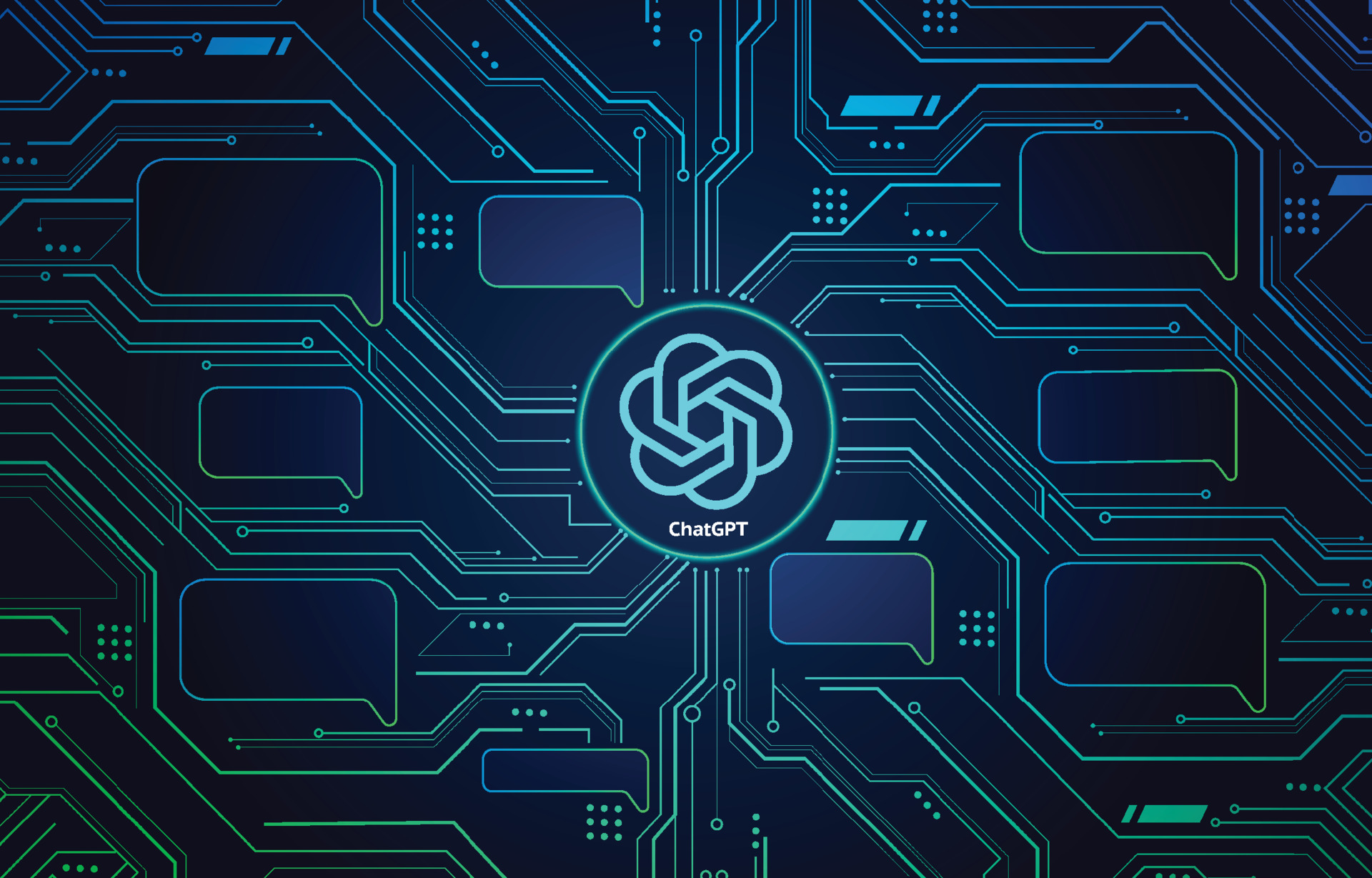In a significant move to enhance the capabilities of its artificial intelligence, OpenAI has officially rolled out the much-anticipated ChatGPT search feature to all users. This update marks a pivotal step in the evolution of conversational AI, expanding the utility of the ChatGPT model and empowering users to find information more efficiently, directly from within the AI environment. As more industries and individuals turn to AI to solve complex problems and assist with everyday tasks, the new search feature is expected to significantly impact how people interact with the platform. Let’s take a closer look at what the ChatGPT search feature entails, how it works, and why this could be a game-changer for both casual users and professionals alike.
1. What Is the ChatGPT Search Feature?
The ChatGPT search feature is a new tool integrated within OpenAI’s ChatGPT interface that allows users to search the web and access information more effectively during their conversations. Until now, ChatGPT has been limited to the knowledge it has been trained on, which only extends up to its last training cut-off (currently September 2021 for GPT-3 and 2023 for GPT-4). The introduction of search capabilities means that users can now ask ChatGPT to look up real-time information, such as the latest news, weather updates, or other data that the model itself might not have knowledge of due to the temporal limitations of its training data.
For example, if a user asks about the latest trends in artificial intelligence, ChatGPT can now pull in the most current data and present it directly in the conversation. This makes the tool far more versatile, capable of addressing a wider array of user needs—especially those requiring up-to-the-minute information or more specialized knowledge not covered in the training data.
2. How the Search Feature Works
The ChatGPT search feature is designed to provide users with accurate and relevant web search results in real-time. When users ask a question, ChatGPT is now capable of performing a live search to gather the latest and most pertinent information from trusted sources. The system then integrates this new information into the ongoing conversation, ensuring users receive contextually relevant responses based on up-to-date data.
This search process is initiated automatically when the AI detects that a query pertains to something outside of its training cut-off or requires the most recent information. The user does not need to take any extra steps, such as switching interfaces or using separate tools, to get the results. It’s all built into the seamless ChatGPT experience that users are already accustomed to.
Here are some core features of the search functionality:
- Real-time Web Searches: ChatGPT can perform web searches during conversations, ensuring that the information shared is as up-to-date as possible.
- Citing Sources: Just as it does with the knowledge it has been trained on, the system will cite the sources from which it gathers the information, ensuring transparency and verifiability.
- Refined Query Handling: Users can ask more specific questions, knowing that the AI will return targeted results. This leads to more relevant and focused answers.
- Interactive Feedback: The AI can also request clarification if a search query is too broad or ambiguous, helping users get the best possible results.
3. Why the Search Feature Is a Game-Changer
The rollout of the search feature marks a transformative development in the way that AI-powered platforms function. Here are several reasons why this feature stands to revolutionize the user experience:
A. Access to Real-Time Information
One of the most obvious advantages of this new feature is the ability to access real-time information. In the past, users had to either rely on outdated knowledge or manually search for the information they needed using a search engine. With ChatGPT’s search feature, however, the process is streamlined. The AI does all the heavy lifting, finding the most recent updates or data that match the user’s request. This is especially useful in fast-moving industries such as technology, finance, and news, where information changes constantly.
B. Increased Efficiency
In a world where time is of the essence, ChatGPT’s search feature allows users to quickly access the most relevant data without leaving the platform. This saves time by eliminating the need for users to manually sift through search engine results or consult other sources for information. Whether it’s a complex research query or a simple need for factual updates, ChatGPT can instantly provide the most pertinent answers, all while keeping the conversation flowing.
C. Expanded Knowledge Base
The search feature expands ChatGPT’s knowledge well beyond its training data, addressing a common limitation of AI models—being stuck in a knowledge freeze. This is particularly valuable for professional users who may need more specific or current information that wasn’t part of the model’s original training. For instance, legal professionals may want to reference the latest case law or regulations, while scientists might require the most up-to-date research papers and findings. The ability for ChatGPT to perform searches on-demand opens up possibilities for real-time, domain-specific knowledge without the AI needing to store that data permanently.
D. Improved User Interaction
The search feature enhances the overall user experience by making ChatGPT more interactive and responsive to the needs of the user. It can now respond to more dynamic queries and engage in real-time conversations that feel more natural. For example, a user might inquire about a trending social media topic, and ChatGPT can immediately reference the latest viral posts, articles, or user sentiments from various platforms. This makes interactions with the AI feel less static and more like conversing with a knowledgeable, real-time assistant.
4. Use Cases for the ChatGPT Search Feature
The potential applications of ChatGPT’s search feature are vast, and users across various sectors can benefit from its integration. Let’s take a closer look at some of the most promising use cases:
A. Education and Research
Students and educators alike will find this feature incredibly valuable. Students can now ask questions about the latest academic papers, scientific discoveries, or current events in their field of study. Researchers can use ChatGPT as a tool for real-time literature searches, where the AI can direct them to relevant studies or articles that were published after the last knowledge cutoff of the model. This ability makes the AI a powerful research assistant that helps bridge gaps in knowledge while saving researchers precious time.
B. Business and Finance
In the business world, where decisions often rely on the latest market trends, ChatGPT’s search feature can be a game-changer. Financial analysts can use the AI to pull the most recent stock data, company performance reports, or even expert analyses on market fluctuations. Additionally, businesses can stay on top of news and industry developments, ensuring that they are never caught off guard by changes in their sector.
C. Healthcare
For healthcare professionals, keeping up with the latest medical research, treatment protocols, and public health guidelines is crucial. ChatGPT’s search feature can help doctors and nurses quickly find relevant information, such as the latest clinical trials or updates on drug regulations. It could also help patients find information about newly available treatments or health advisories, provided the AI pulls from reputable medical sources.
D. Content Creation and Journalism
Writers, journalists, and content creators will benefit from the ability to pull in real-time data for their projects. Whether it’s writing an article on a developing news story or generating content that includes current events, ChatGPT’s search feature will streamline the research process. Journalists, for instance, can quickly get up-to-date quotes, facts, and statistics that are critical for accurate reporting.
E. Personal Use
Even for casual users, the search feature can make day-to-day tasks easier. Whether it’s planning a trip, keeping up with the latest trends, or simply wanting to know the latest gossip, ChatGPT can be the go-to assistant for fast, accurate, and relevant information. The search feature means that users don’t have to leave the platform to do a web search, keeping everything in one place.
5. Potential Challenges and Considerations
While the new search functionality brings exciting possibilities, it’s important to consider some challenges and implications that come with this feature.
A. Privacy and Data Security
Since ChatGPT will be performing live searches, ensuring user privacy and data security will be paramount. OpenAI has yet to release detailed information on how it plans to handle user data during these searches, but concerns about tracking or misuse of personal information are likely to arise. Users will want reassurance that their search queries won’t be used for unintended purposes.
B. Search Result Quality
The quality of the search results will be another area to monitor. ChatGPT’s ability to filter and prioritize reliable sources will be crucial in ensuring the accuracy of the information it provides. If the AI fails to discern trustworthy sources or returns irrelevant data, it could undermine the utility of the feature.
C. Ethical Implications
Another concern is the ethical implications of AI-driven search results. ChatGPT will need to balance between presenting diverse perspectives and avoiding the spread of misinformation. Careful considerations will need to be made to ensure that the search tool doesn’t amplify harmful or biased content.












